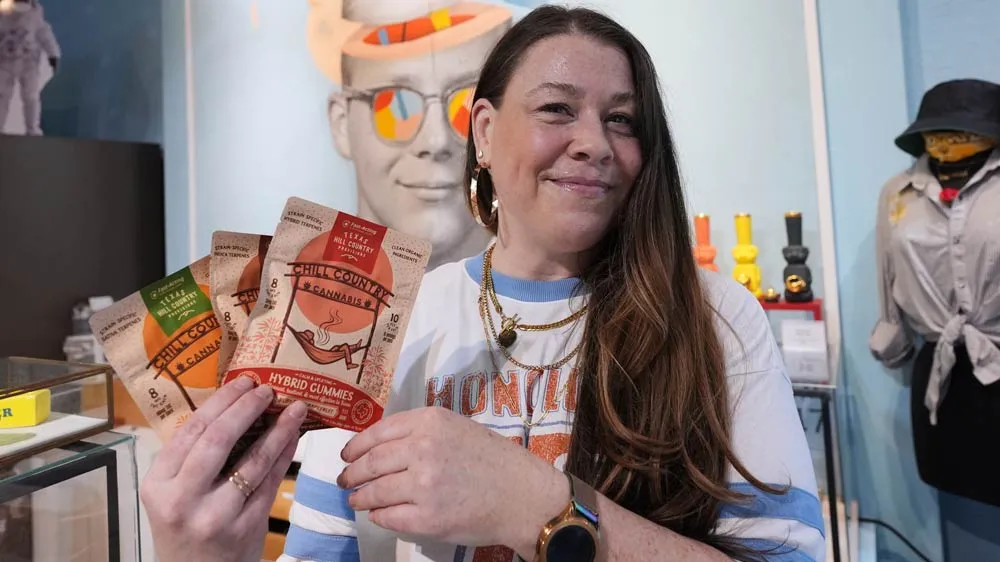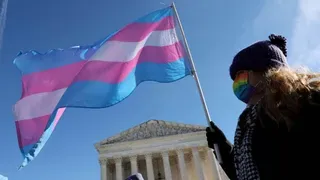March 5, 2017
Transgender People of Color Suffer Worse Abuse, Harassment and Violence, but You Can Help
Jeff Taylor READ TIME: 4 MIN.
Due to the intersection of racism and transphobia, transgender people of color experience increased hardships, often struggling to remain safe, employed and in adequate housing due to rampant discrimination.
The NC Queer TROUBLMakers (Queer and Trans Revolutionaries Organizing Under Black Lives Matter), a statewide collective started in 2015, is taking action to get funds where they are most needed in order to help transgender people of color survive and thrive.
The group states as its mission "to actively fight the whitewashing of the LGBTQ movement and the white silence and violence of the corporate gay rights 'movement,' to create autonomous LGBTQ people of color community." It operates an emergency fund, called the Trans Kindred Fund, established approximately a year ago, and has just formerly started a new campaign to offer assistance to those in need on a monthly basis.
Donations go toward the wellbeing and sustainability of the North Carolina transgender and queer community of color, in the form of assistance with food, housing and healthcare payments.
Those interested in becoming monthly sustainers are now being called to do so through a program called the Trans Reparations Project that is run under the concept of reparations, which likewise will allow transgender and queer people of color to afford their basic needs for survival.
"Within the last year, in response to the hostility against trans people of color as a result of HB2, and historic genocide and villainization of trans people of color, we [have been] organizing in resistance and coming together in centralized communities across the state, of queer and trans people with antiracist leadership support," said April Parker, an organizer with the NC Queer TROUBLMakers.
"The larger non-profits and our cities are completely unresponsive to the needs of queer and trans black people," Parker continued, adding that the sharing of resources is nothing new in their community, but that there is a need for more people from outside that demographic to step up and contribute as well.
"I can think of at least twice where the [Trans Kindred Fund] paid my rent," said Ashley Williams, a transgender activist and organizer living in Charlotte. "I think that a lot of different queer and trans folks of color have benefitted from the fund."
One need look no further than the recently released report by the National Center for Transgender Equality to see the struggle faced every day by members of the transgender community, especially those of color.
The "2015 U.S. Transgender Survey Report" is the largest survey examining the experiences of transgender people in the U.S., drawing from interviews of over 27,700 individuals from all 50 states, the District of Columbia, American Samoa, Guam, Puerto Rico and U.S. military bases overseas.
Among its findings was that 10 percent of transgender respondents who were out to their immediate families reported that a family member had been violent toward them because they were transgender, with 8 percent reporting they were kicked out of for being trans.
Meanwhile, 46 percent reported being verbally harassed and 9 percent reported being physically attacked due to being trans in the previous year, and 10 percent said they had been sexually assaulted during that time. Nearly half reported having been sexually assaulted at some point in their lifetime.
Activists rally for the Save Her Name initiative which commemorates the women who lost their lives
due to police brutality and anti-Black violence.
At school, for those who were already out or perceived as transgender, 54 percent reported being the victims of verbal harassment, 24 percent said they had been physically attacked, and 13 percent reported being sexually assaulted because they were transgender.
Nearly one third of respondents were living in poverty. The unemployment rate for transgender people of color is four times higher than the U.S. unemployment rate.
Last year was the deadliest on record for transgender people in the U.S., and, as in years past, most of those killed were black transgender women of color.
Parker notes that the Movement for Black Lives platform includes a call for reparations in order to help rectify the imbalance caused by historic and current systemic racism.
"The government, responsible corporations and other institutions that have profited off of the harm they have inflicted on Black people - from colonialism to slavery through food and housing redlining, mass incarceration and surveillance - must repair the harm done," the Movement for Black Lives website states.
Additionally, a United Nations group, the UN Working Group of Experts on People of African Descent, said the U.S. owes African-Americans reparations for slavery. While the report is non-binding, it put its message in clear terms, saying the U.S. still has not confronted its legacy of "racial terrorism."
Organizer Jamie Marsicano said that since the state has not stepped up to see that people of color receive reparations, community action is needed to make it happen.
The previous groups mentioned above added that reparations were needed in order to "redistribute some of the wealth and power that white people in general have been able to build on the backs of black and brown folks" throughout history.
The NC TROUBLMakers shared that at the time of the interview there were 150 white people secured as monthly sustainers.
Those interested in donating on a monthly basis to the reparations fund can send an email to either [email protected] or to [email protected] for more information.
Those interested in making a one-time donation to the Trans Kindred Fund can do so by visiting bit.ly/2kgBSv3.






